Ditapis dengan
The Multifaceted Nature of Food and Nutrition Insecurity around the World and…
The international concept of food security is a situation where all people have physical, social, and economic access at all times to sufficient, safe, and nutritious food that meets their dietary needs and food preferences for an active and healthy life. All four parameters (availability, access, utilization, and stability) should therefore be measured to determine food security status.Taking …
- Edisi
- -
- ISBN/ISSN
- 978-3-0365-4731-2
- Deskripsi Fisik
- 232 hlm.
- Judul Seri
- -
- No. Panggil
- -
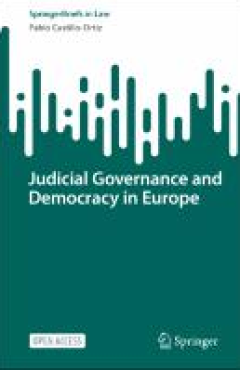
Judicial Governance and Democracy in Europe
Amid the growing debate about models of judicial governance and their relationship to democratic quality, this book offers a systematic and empirical study of this relationship. The book thereby contributes to filling in this gap for the European continent. Taking an interdisciplinary politics and law perspective, and combining empirical and theoretical considerations, the book addresses the im…
- Edisi
- -
- ISBN/ISSN
- 978-3-031-20190-5
- Deskripsi Fisik
- 96 hlm.
- Judul Seri
- -
- No. Panggil
- -

International Students and Academic Libraries : A Survey of Issues and Annota…
- Edisi
- -
- ISBN/ISSN
- 978-0-8108-7430-5
- Deskripsi Fisik
- -
- Judul Seri
- -
- No. Panggil
- -
- Edisi
- -
- ISBN/ISSN
- 978-0-8108-7430-5
- Deskripsi Fisik
- -
- Judul Seri
- -
- No. Panggil
- -
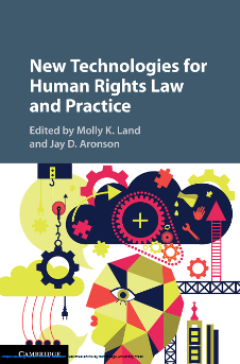
New Technologies for Human Rights Law and Practice
New technological innovations offer significant opportunities to promote and protect human rights. At the same time, they also pose undeniable risks. In some areas, they may even be changing what we mean by human rights. The fact that new technologies are often privately controlled raises further questions about accountability and transparency and the role of human rights in regulating these ac…
- Edisi
- -
- ISBN/ISSN
- 978-1-316-83895-2
- Deskripsi Fisik
- 334 hlm.
- Judul Seri
- -
- No. Panggil
- -

Making Science Fun – A Tribute to Our Colleague and Friend, Prof. Antonius …
- Edisi
- -
- ISBN/ISSN
- 978-2-88945-751-9
- Deskripsi Fisik
- 211 page
- Judul Seri
- -
- No. Panggil
- -
- Edisi
- -
- ISBN/ISSN
- 978-2-88945-751-9
- Deskripsi Fisik
- 211 page
- Judul Seri
- -
- No. Panggil
- -
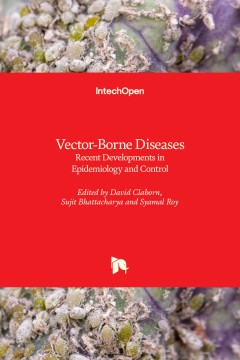
Biological Activity of Natural Secondary Metabolite Products
- Edisi
- -
- ISBN/ISSN
- 978-3-03897-175-7
- Deskripsi Fisik
- -
- Judul Seri
- -
- No. Panggil
- -
- Edisi
- -
- ISBN/ISSN
- 978-3-03897-175-7
- Deskripsi Fisik
- -
- Judul Seri
- -
- No. Panggil
- -

New Insights into Endometrial Cancer 2022
Endometrial cancer is a hormone-dependent cancer with an increasing incidence that is estimated to continue to grow over the next several years. It is typically treated with surgery and/or chemo-/radiation therapy. The clinical benefit of hormone therapies for advanced and recurrent endometrial cancers underlines the need to examine their characteristics (particularly, steroid hormone receptor …
- Edisi
- -
- ISBN/ISSN
- 978-3-0365-7914-6
- Deskripsi Fisik
- 180 page
- Judul Seri
- -
- No. Panggil
- -

Molecular World Today and Tomorrow: Recent Trends in Biological Sciences
- Edisi
- -
- ISBN/ISSN
- 978-3-0365-6996-3
- Deskripsi Fisik
- -
- Judul Seri
- -
- No. Panggil
- -
- Edisi
- -
- ISBN/ISSN
- 978-3-0365-6996-3
- Deskripsi Fisik
- -
- Judul Seri
- -
- No. Panggil
- -
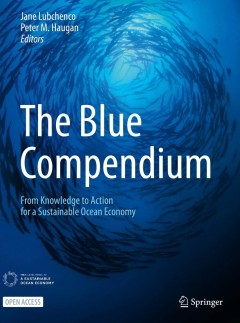
The Blue Compendium : From Knowledge to Action for a Sustainable Ocean Economy
Home to over 80 percent of all life on Earth, the ocean is the world’s largest carbon sink and a key source of food and economic security for billions of people. The relevance of the ocean for humanity's future is undisputed. However, the ocean’s great potential to drive economic growth and equitable job creation, sustain healthy ecosystems, and mitigate climate change is not yet fully reco…
- Edisi
- -
- ISBN/ISSN
- 978-3-031-16277-0
- Deskripsi Fisik
- XII, 915 p
- Judul Seri
- -
- No. Panggil
- -
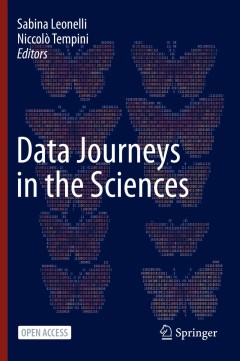
Data Journeys in the Sciences
This groundbreaking, open access volume analyses and compares data practices across several fields through the analysis of specific cases of data journeys. It brings together leading scholars in the philosophy, history and social studies of science to achieve two goals: tracking the travel of data across different spaces, times and domains of research practice; and documenting how such journeys…
- Edisi
- -
- ISBN/ISSN
- 978-3-030-37177-7
- Deskripsi Fisik
- XVII, 412p
- Judul Seri
- -
- No. Panggil
- -
 Karya Umum
Karya Umum  Filsafat
Filsafat  Agama
Agama  Ilmu-ilmu Sosial
Ilmu-ilmu Sosial  Bahasa
Bahasa  Ilmu-ilmu Murni
Ilmu-ilmu Murni  Ilmu-ilmu Terapan
Ilmu-ilmu Terapan  Kesenian, Hiburan, dan Olahraga
Kesenian, Hiburan, dan Olahraga  Kesusastraan
Kesusastraan  Geografi dan Sejarah
Geografi dan Sejarah